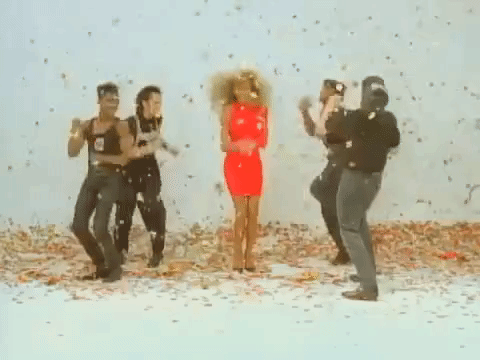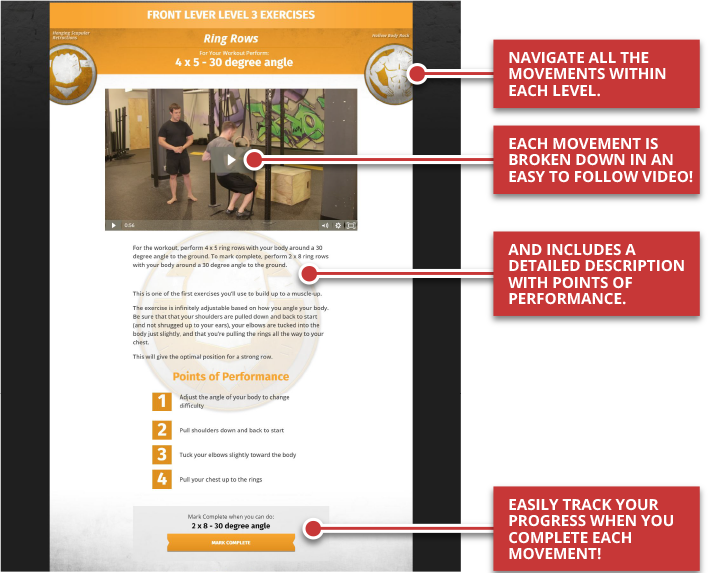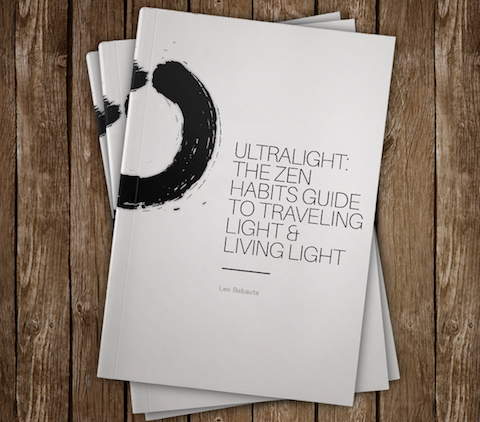By Leo Babauta
As I write this, I’m sitting in cloud-filled rainforest at a retreat in Ecuador, surrounded by the calls of thousands of tropical birds and creatures, dense lush greenery, and some of the most open-hearted human beings I’ve ever met.
Before I came here, I had some anxiety about meeting everyone, worried what they might think of me, worried that I would be awkward at talking to everyone or not fit in. This anxiety made me not want to come. That would have been a huge mistake.
I realized that I was telling myself a story about how bad I am at public speaking, at meeting new people, about how unworthy I am of others liking me. This story was not helpful, and was getting in the way of me doing something with the potential to be amazing. So I asked myself if it was definitely true, and the answer was, “I don’t know.”
That “I don’t know” scares me. I decided I had to look at the “I don’t know” in a different way — so I told myself instead, “I don’t know, and I would love to find out. Who knows what I’ll discover?”
This helped me to get on the plane, and then I was forced to meet an entire group of 24 strangers. And I could see them as 24 people who were potentially going to judge me … or I could see them as fellow human beings, who have aspirations and who struggle, who have love for others and frustration and anger, who want to be better people and who are disappointed in themselves that they are not, who want to make a difference in the world and feel guilty that they procrastinate, who are beautiful but who judge themselves, who are so different from me in many wonderful ways but who at their core have the same tender heart of humanity beating with strength and fragility, just like me.
I met them, and smiled. I felt the anxiety coming up again, but I turned with curiosity to them. I felt myself wanting to run away and be alone and comfortable, but I tried to find their aspirations and struggles.
I opened my heart to them, and they came in with kindness. And changed me. And made the effort of overcoming my fear and anxiety of being judged and failing completely worth the effort, a thousand times over.
Human connection is not so common in our age of connectivity. We see lots of people but find our little cucoons to hide in. We don’t realize we’re craving a deeper connection with others until we find it.
It’s hard to connect, because cultural norms get in the way — we’re supposed to talk about the weather and sports and the news, but not our deepest struggles. We’re supposed to say cool or witty things, but not share our greatest hopes for our lives or the person we want to become.
It’s hard, but human connection is one of the most powerful forces available to us. We don’t realize we thirst for it, but we do, and the thirst is deep. When I find real human connection, it nourishes my soul, changes me, moves me to tears. I can’t count how many times I’ve cried this week. My heart feels raw, in a way that opens it up to further connection.
So how do we connect, when it’s so hard? I’d like to share some thoughts:
- Put yourself in a place with people with your interests. This retreat is filled with people trying to change their lives and interested in mindfulness. That’s such a rare thing, to be with a group of people like this, but we each made the intentional choice to come here. Find a group like that — at a small conference, a retreat, group meetings, a running club, a tech meetup, anything. Do some online searches for ideas, but say yes to at least one.
- Overcome your resistance. I always find resistance to meeting up with people, and big resistance to coming to give a presentation and meeting with a bunch of strangers. The resistance can keep us from ever getting out of our comfort zones. Don’t let it. The benefit of connection is so much greater than the resistance that you should push through it.
- Smile, and be curious. When you meet these scary strangers, open yourself up. Smile, ask them about themselves, try to find out more. People often appreciate a good listener, and questions can start a conversation and keep it going.
- Share when you can. While listening is better than talking, I’ve found that when I can be vulnerable and share my fears and struggles, people feel they can do the same. This is when you make a real connection, getting below the surface. It takes a little skill to know when you can open up, and how much you can share — you don’t want to share your deepest secrets as soon as you meet, but you can slowly open up, as the other person does the same. Some people are not comfortable opening up, so don’t push it too deep or expect everyone to want to make this kind of connection, but be open to it.
- Open your heart. These are other human beings in front of you — and they have tender hearts and pain and hope just like you do. Open your heart and see who you find in front of you and appreciate who you find. Be yourself, and trust that you are worthy of others’ love as well. Let others in. Give hugs.
- Connect in groups and one-on-one. If you’re at a conference or in a big group of 20 or more people, it can be hard to really find connection. I much prefer one-on-one, so I’ll try to turn to someone and start a private conversation if they’re open to it, getting to know them better. I also value small group conversations, from three to six people, and think they can be great bonding experiences and a lot of fun.
- Don’t hide in your phone. Many of us have the tendency these days to use our phones when we’re in crowded public spaces, but when you’re going somewhere (like a conference) that has a lot of people, it’s a big mistake to shut yourself off. Instead, seek interaction, even if you feel awkward about it. I like to start off with a simple question, or sometimes with a simple joke that diffuses the tension.
- Practice makes you better and more comfortable at it. I’m certainly not the world’s best conversationalist, nor the most comfortable talking in a group. However, I’m better now than I have been in the past, because I’ve been purposefully practicing over the last decade or so. I still have a long way to go. But it’s amazing to see the progress I’ve made, and the more I do it, the less nervous I get.
- Use each other do dive deeper and find clarity. If you can have good one-on-one conversations, or even small group talks, challenge each other to go deeper into your struggles and challenges, aspirations and life purposes. You’ll often find a lot of clarity in these talks.
- Use each other for continued support. I often offer to give someone accountability if they say they’ve been struggling to deal with a habit. Or if we’re both struggling with something, we might try to support each other’s efforts to overcome the struggle in the near future.
- Make an effort to keep in touch. If you make a real human connection, find a way to keep up the conversation, and even meet again in person if it’s possible. If it’s not possible, make a skype date so you can talk face-to-face.
I don’t pretend to have all the answers, nor to be any kind of expert. I still get nervous and awkward. But these ideas have helped me, and I hope they help you. Because simple connections with wonderful human beings have changed my life this week, and the power of the love from these connections has left me completely devastated.
from zen habits https://zenhabits.net/human/
via IFTTT




